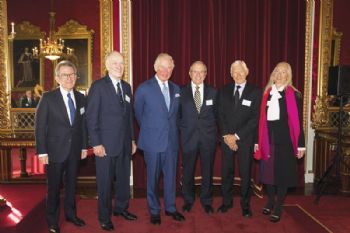
Earlier this month, four US engineers were awarded the 2019 Queen Elizabeth Prize for Engineering for their work ‘creating the first truly global satellite-based positioning system’ — GPS.
HRH The Prince of Wales presented the trophy to Bradford Parkinson, Hugo Fruehauf, Richard Schwartz and Anna Marie Spilker (accepting the award on behalf of her late husband, James Spilker).
Dr Parkinson led the development, design and testing of the system, while Mr Fruehauf developed a highly accurate miniaturised atomic clock.
Mr Schwartz engineered a satellite that was ‘hardened’ to resist intense radiation in space, and Professor Spilker was the main designer of the GPS civil signal (with his team at Stanford Telecommunications, he built the
receiver that processed the first GPS satellite signals).
Today, an estimated four billion people around the world use GPS, and new applications for it “continue to revolutionise entire industries”.
The annual economic value of GPS has been estimated to be $80 billion for the USA alone. The system comprises a ‘constellation’ of at least 24 orbiting satellites, with ground stations and receiving devices.
Each satellite broadcasts a radio signal containing its location and the time from an extremely accurate onboard atomic clock.
GPS receivers need signals from at least four satellites to determine their position; they measure the time delay in each signal to calculate the distance to each satellite, then use that information to pinpoint the receiver’s location on earth.
Lord Browne of Madingley, chairman of the Queen Elizabeth Prize for Engineering Foundation, said: “This year’s laureates have demonstrated that engineering makes things happen.
"With the first global satellite-based positioning system, they created an engineered system that provides free, immediate and accurate information about position and time — anywhere around the globe.
"The world now depends on GPS. In honouring the 2019 prize winners, we hope to inspire the next generation of engineers to continue to push back the frontiers of the possible.”